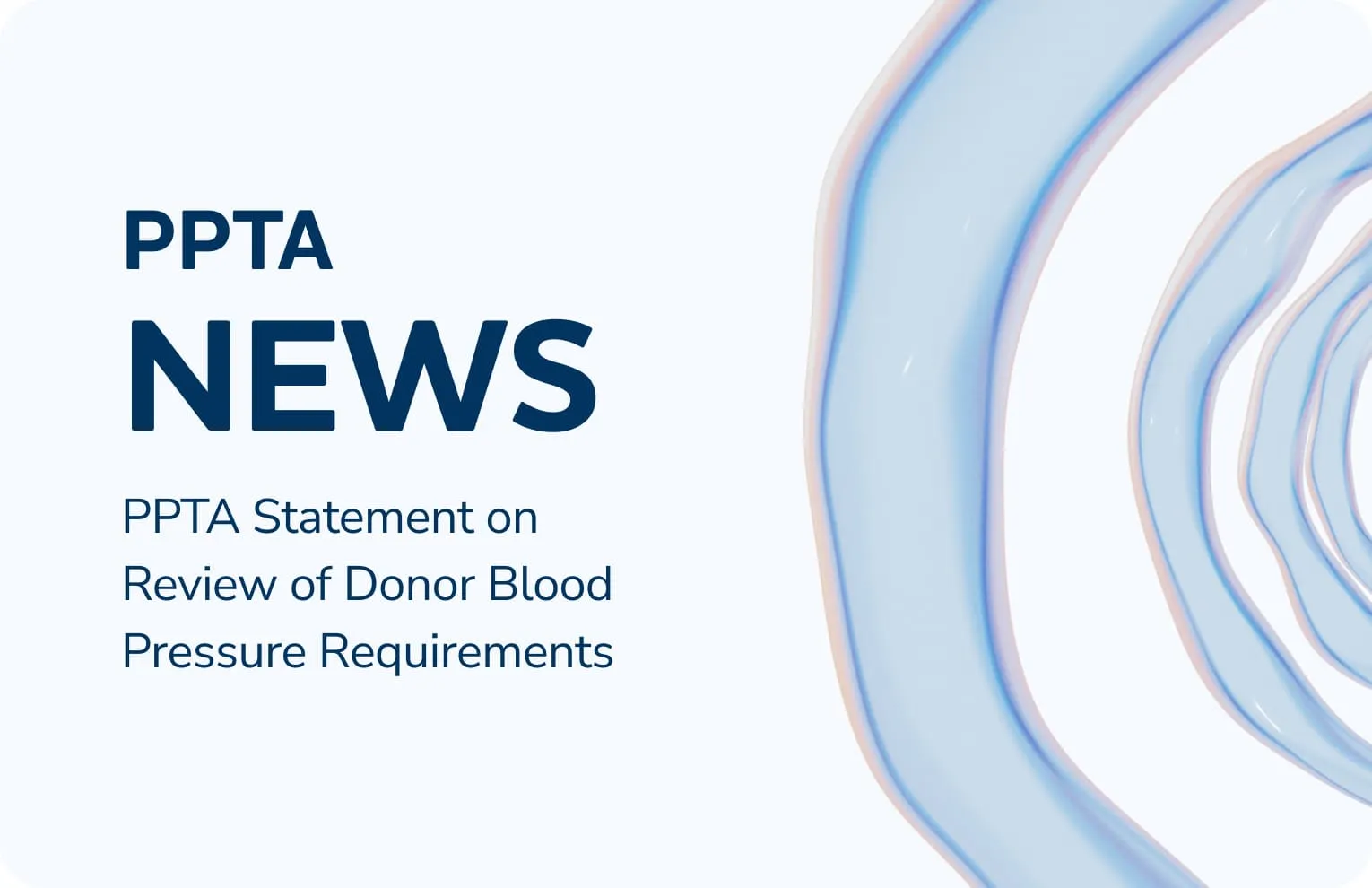PPTA welcomes positive developments but regrets missed opportunities to support plasma donors and patients who rely on plasma-derived medicinal products (PDMPs)
Brussels, Belgium (July 14, 2022). While the text of the draft regulation on Substances of Human Origin (SoHo) addresses a number of PPTA’s concerns, it has missed the opportunity to help Member States increase plasma collection to improve the reliable availability of life-saving, plasma-derived therapies to patients with a wide range of rare and complex, chronic diseases. As much as 38% of the plasma used to produce medicines for the EU’s 300,000 rare disease patients who rely on PDMPs comes from the U.S., a reliance highlighted during the pandemic, when critical plasma donations declined significantly.
We particularly welcome the differentiation of plasma for fractionation from blood and blood components for transfusion. This forms the foundation of policies that will support the increased availability of plasma in Europe. It is essential to recognise that life-saving PDMPs can only be made from plasma donated by healthy volunteers.
The draft text recognises that the provision of a fixed-rate allowance to compensate plasma donors for “losses” related to their donation via plasmapheresis - with the conditions set by the Member States – is compatible with the Voluntary Unpaid Donation principle[1]. However, we believe it is important to clarify that “losses” include the “expenses and inconveniences” related to donation, as currently stated in the Tissues and Cells Directive. This is critical, as plasma donation is more complex and time-consuming than whole blood donation.
PPTA is concerned about the regulation’s claim that “donations of plasma should be considered to imply a significant risk”. This claim is not supported by any scientific evidence. On the contrary, a recent PPTA study (Schreiber et al[2]) of more than 12 million plasma donations has shown adverse events to be rare (approximately one event in 10,000 donations), and the majority of them (90%) mild in nature. As such, the adverse incident rate is quite comparable to that of blood donations.
We note the enhanced role of the European Centre for Disease Prevention and Control (ECDC) and the European Directorate for the Quality of Medicines & HealthCare (EDQM) in the provision of technical guidance to help assure the safety of donations and maintain donor health. PPTA is keen to share our expertise with them to ensure that provisions for plasma for fractionation take into account the substantial differences, compared with transfusable components, including in the areas of donor deferrals, mandatory testing, manufacturing, and storage. We look forward to working with both organisations in full transparency and with appropriate EU-level stakeholder involvement and consultation.
“We are disappointed that the important role of the private sector in the collection of plasma has not been recognised in the current draft,” said PPTA Executive Director Europe, Maarten Van Baelen. “Neither the private nor the public sector alone can address the issue of the growing clinical need for plasma in the EU. Coexistence between the public and private sectors will be crucial to ensure reliable access to plasma for patients,” he added. Currently, only Germany, Austria, the Czech Republic and Hungary allow private sector collection, and yet these four countries alone contribute 44% of total plasma volumes in the EU.
PPTA and its member companies look forward to working with policymakers and all stakeholders to promote a legislative text that helps to ensure the safety of donors and supports the increase in plasma collection in the EU, which will benefit patients with rare and complex chronic diseases, who rely on PDMPs.
[1] The EU Charter of Fundamental Rights, Article 3
[2] Schreiber GB, Becker M, Fransen M, Hershman J, Lenart J, Song G, et al. 2021. "Plasmavigilance - Adverse events among US source plasma donors." Transfusion 2941-57
Media Contact:
Faraz Kermani
Head of Global Communications
+49 171 5691054
FKermani@pptaglobal.org





